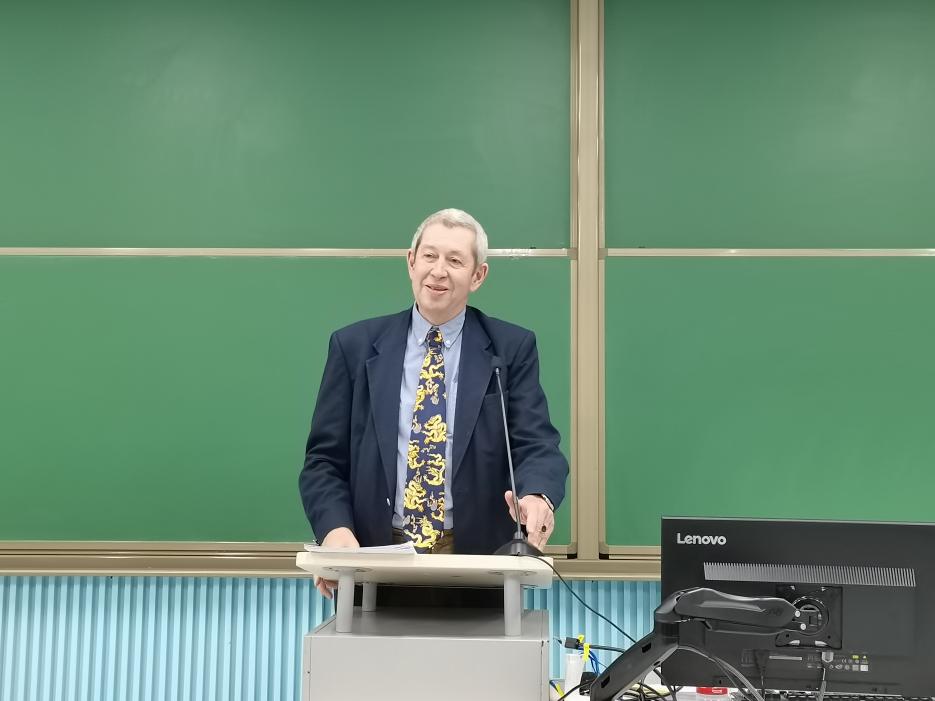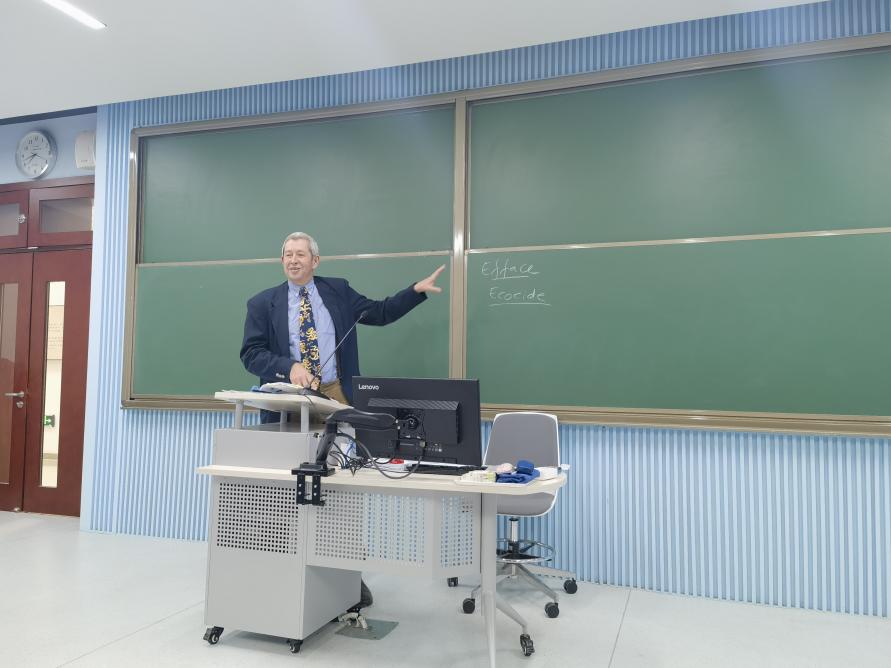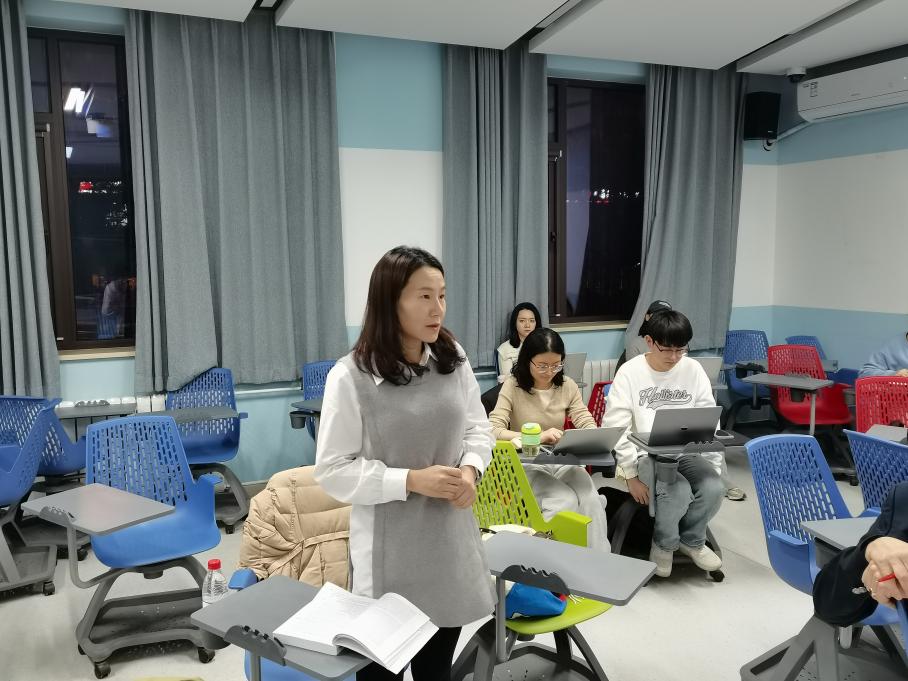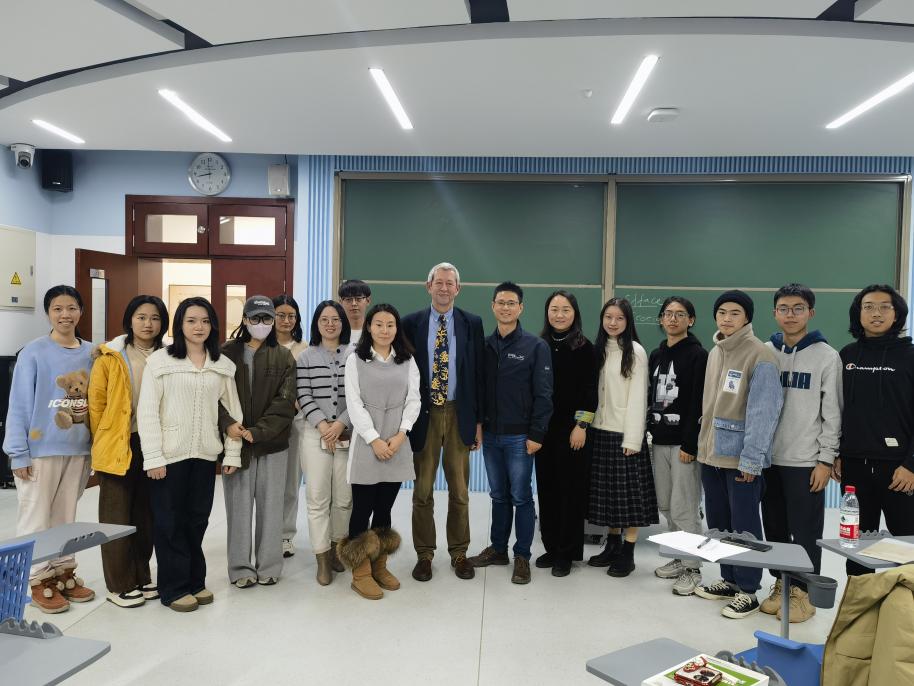
The 103rd session of the BNU Distinguished Jurist Lecture Serise themed "The Revolution of European Environmental Criminal Law: Towards Autonomous Environmental Crimes," hosted by the Law School of Beijing Normal University, was successfully held in Room 101, Teaching Building 3 on January 5, 2024. This lecture was given by Professor Michael Faure from Maastricht University in the Netherlands, Professor Erasmus of University Rotterdam, Academic Director of the European Union Cross Border Law Institute at Maastricht University in the Netherlands, Director of the European Centre for Tort and Insurance Law, Academician of the Royal Dutch Academy of Sciences (KNAW), and Chairman of the Flemish Higher Committee for Environmental Enforcement in Belgium. This lecture was presided over by Associate Professor Yan Houfu from the Law School of Beijing Normal University. Faculty members Zhao Chengguang and Yang Chao from the College for Criminal Law Science at Beijing Normal University, along with a contingent of teachers and students from the Law School of Beijing Normal University, actively engaged in the lecture.
Kicking off the lecture, Professor Faure reminisced about his visit to the Law School of Beijing Normal University the previous autumn, expressing his admiration and gratitude for the academic fervor displayed by the faculty and students. He succinctly recapped the thematic expansion of his initial lecture and provided a concise overview of the advancements in EU environmental criminal law. Professor Faure highlighted that the focus of his lecture would center on two key issues: firstly, the significance of designing and safeguarding environmental public welfare through the establishment of autonomous environmental crimes; and secondly, the exploration of avenues to protect environmental public welfare via criminal law. Professor Faure underscored that not all environmental actions should be criminalized under criminal law, as legal frameworks permit pollution discharge or ecological exploitation within certain limits. He noted the substantial distinction between environmental violations and inherently harmful acts such as murder, characterizing the regulation of environmental crimes as a matter of "balance." Legislators, he argued, must strike a balance between economic interests and environmental welfare, as well as between human rights protection and environmental conservation. Environmental crimes, he explained, often rest on the premise of "breaching administrative legal obligations," a concept that holds both theoretical and practical advantages. However, this approach also gives rise to challenges in environmental regulation, such as "regulatory capture" and the "permit shield" phenomenon, and can result in inadequate criminal protection due to deficiencies in administrative law. Researchers, he urged, must delve deeper into these issues and devise appropriate responses. Furthermore, Professor Faure shared insights from his EFFACE project and the integration of his research on the crime of ecological genocide into legal frameworks, which elicited laughter and engagement from the assembled faculty and students.


In the course of the conversation, Professor Zhao Chengguang highlighted that environmental crime is a pivotal academic concern in today's context, intricately linked to climate change, corruption, and other pressing issues. Teacher Zhao delved into a discussion and posed questions concerning the application of strict liability for environmental crimes and the harmonization of environmental crime norms across various European jurisdictions and legal systems.
Building on his research into environmental crime in Italy, Professor Yang Chao elaborated on the nexus between environmental crime and human rights protection, the multifaceted defining elements of environmental crime, and its connection to corruption, while also putting forward pertinent questions.
Teacher Yan Houfu commended Professor Faure on the European Commission's adoption of the relevant legislation, noting that the US "permit shield" clause exempts polluters from criminal and administrative liability but does not extend to civil liability. Similarly, in China's legal framework, although polluters in compliance with permit conditions are not held administratively or criminally accountable, they remain liable for civil damages when their pollution results in harm to public health or the ecological environment. He pointed out that because environmental infringement entails no-fault liability and often involves substantial compensation, it serves as a significant deterrent to polluters. Teacher Ai Huizi shared her perspectives on the nature of the permit system and queried its application in the context of environmental crimes. The lecture concluded with a round of hearty applause, marking a successful engagement with the topic.




